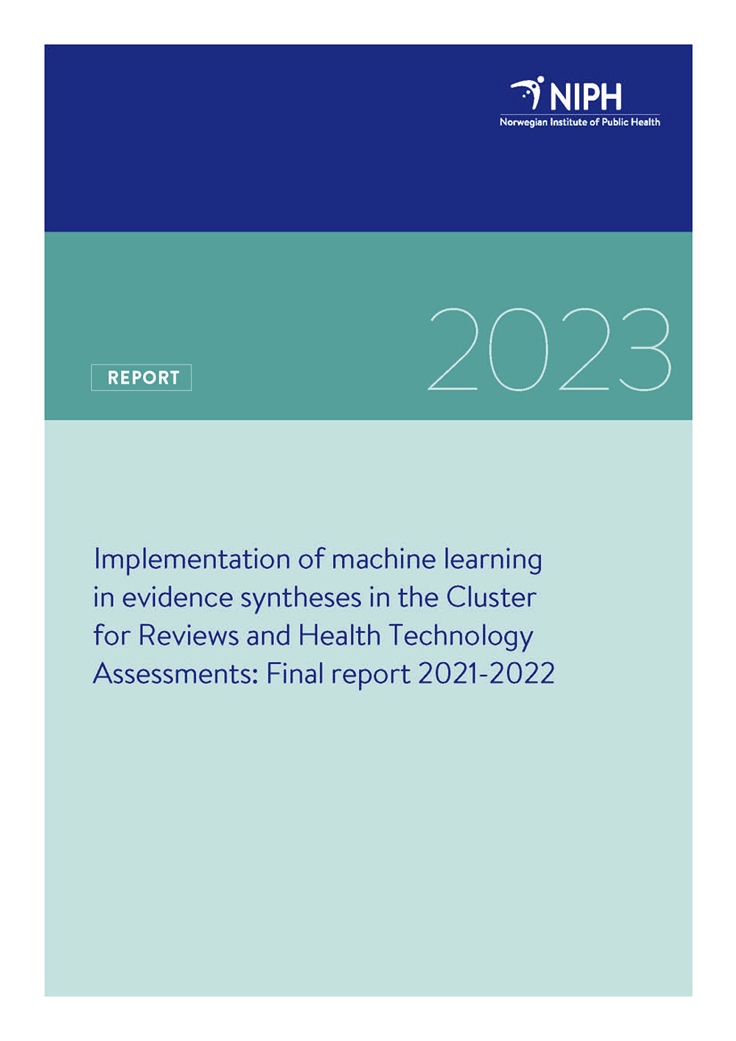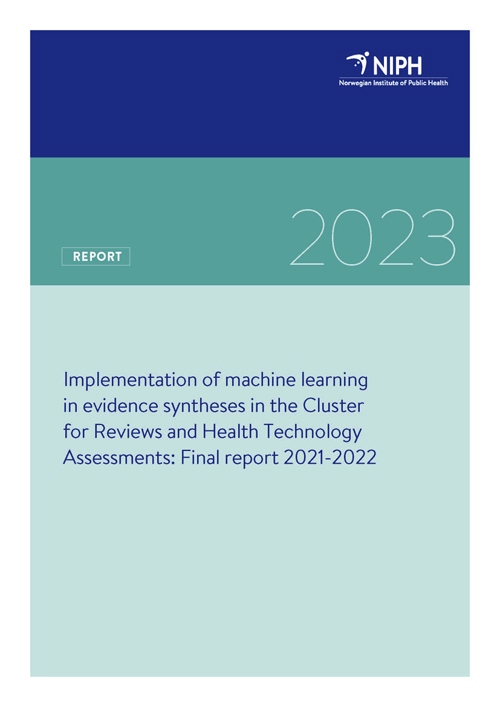Implementation of machine learning in evidence syntheses in the Cluster for Reviews and Health Technology Assessments: Final report 2021-2022
Report
|Published
Machine learning (ML) is a focus area for the Cluster for Reviews and Health Technology Assessments (HTV), Division for Health Services, NIPH. In autumn 2021, ML 2.0 continued the work after ML 1.0. This report describes the ML 2.0 team's work, results and experiences.
Key message
Machine learning (ML) is a focus area for the Cluster for Reviews and Health Technology Assessments (HTV), Division for Health Services, NIPH. In autumn 2021, ML 2.0 continued the work after ML 1.0. This report describes the ML 2.0 team's work, results and experiences. ML team 2.0's key achievements include:
- implementation of an intense machine learning week with the aim of increasing capacity in HTV,
- initiation of a study that will estimate the resource savings by ML use within reviews,
- dissemination of our ML work in international fora, which has highlighted the unique work the ML team has contributed with within evidence synthesis in HTV,
- supporting innovative uses of ML within health technology assessments and living evidence and gap maps,
- preparation of two funding applications,
- contributions to other national and European funding applications.
The ML team has contributed to a gradual adaptation of HTVs methods towards more efficient workflow processes, which is now reflected in resource savings in HTVs projects. The resource- and workload savings we have experienced allowed us to deliver more reports than possible with using only traditional methods or spend more time on other parts of the evidence synthesis process.
ML 2.0 still appears as a unique and innovative team that leads and facilitates the implementation of ML within evidence syntheses. New ML activities related to exploration and evaluation of new functions, tools or topics would allow for a more open and fluid ML environment where any employee can feel mastery and ownership over ML functions or tools. These factors are crucial for NIPH’s ability to adapt and to continue to excel in the rapidly developing evidence synthesis field.

